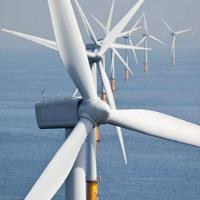(LUXEMBOURG) – EU action to support carbon capture and storage and innovative renewables has not succeeded, according to a report published Tuesday by the European Court of Auditors.
Between 2008 and 2017, ambitious targets were set, but EU support for demonstration projects achieved little in terms of projects delivered and results achieved, say the auditors. The EU needs to adapt its new Innovation Fund to reach its objectives, they add.
In 2009, the EU launched two large funding programmes to support carbon capture and storage and innovative renewables: the European Energy Programme for Recovery and the New Entrants’ Reserve 300 programme. With an overall spending target of EUR 3.7 billion, both programmes set ambitious targets for the delivery of carbon capture and innovative renewables. Under the 2015 Paris Agreement, the EU is committed to at least a 40% reduction in greenhouse gas emissions by 2030, complementing its ambition to achieve a low-carbon economy by 2050.
The auditors looked at the design, management and coordination of both programmes, and assessed whether they had made the progress expected in terms of helping carbon capture and innovative renewables advance towards commercial deployment. They visited projects in Germany, Spain, the Netherlands, Poland and the United Kingdom.
They found that the Energy Programme for Recovery contributed positively to the development of the offshore wind sector, but fell short of its ambitions for carbon capture. Meanwhile, the New Entrants’ Reserve programme delivered no successful carbon-storage projects and made little progress in supporting the demonstration of a wider range of innovative renewable-energy technologies.
“The EU strives to be the global leader in fighting climate change”, said Samo Jereb, the Member of the European Court of Auditors responsible for the report. “To be on track, it needs to draw lessons from past failures, design better support mechanisms for innovative low-carbon technologies and ensure full accountability for public resources used to meet this challenge.”
In detail, the ECA found that adverse investment conditions affected both programmes, note the auditors. Uncertainty in regulatory frameworks and policies hampered or delayed the progress of many innovative renewable energy and carbon-capture projects. The report also highlights the key role of volatile and lower-than-expected carbon market prices after 2011 in the failure of carbon capture and storage deployment.
The auditors found that the design of the New Entrants’ Reserve programme limited the Commission’s and the Member States’ ability to respond effectively to changing circumstances. Project selection and decision-making processes were complex, and other design features constrained the programme’s flexibility. Major improvement is required in coordination to enhance coherence and bring more clarity, say the auditors. They also raise concerns about the lack of clear accountability and control arrangements for the New Entrants’ Reserve Programme. Funds for this programme did not pass through the EU budget, and are not recorded in the EU balance sheet.
The EU is now preparing to launch the Innovation Fund in 2021 to help speed up the transition to a low-carbon economy. With this in mind, the auditors recommend that the European Commission should:
- increase the potential for effective EU support for such projects;
- improve the project selection and decision-making procedures for the forthcoming Innovation Fund, and ensure its flexibility to respond to external developments;
- enhance its internal coordination for more coherent targeting of EU support;
- ensure accountability for the Innovation Fund and the New Entrants’ Reserve Programme.


